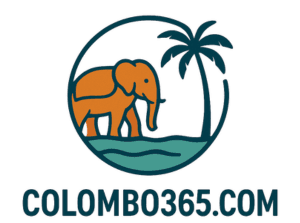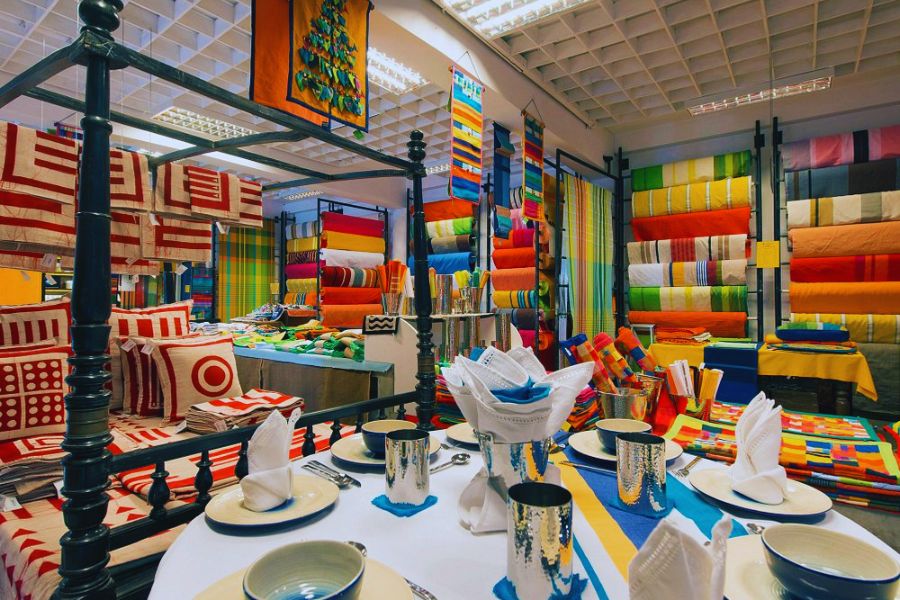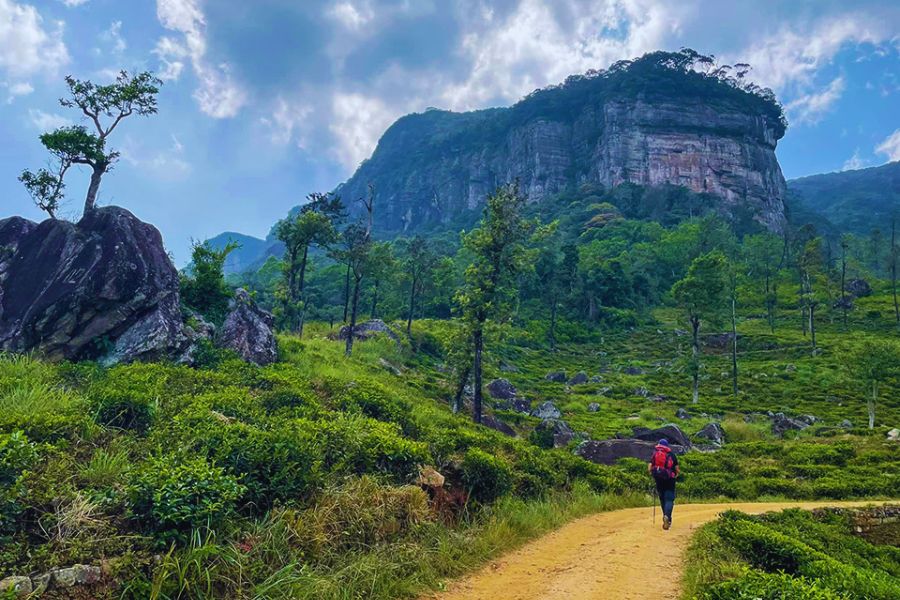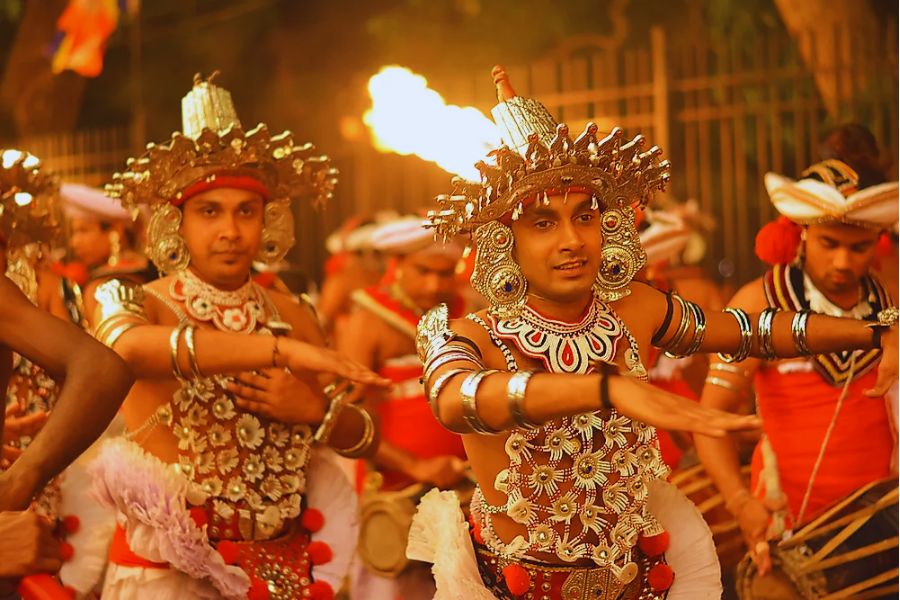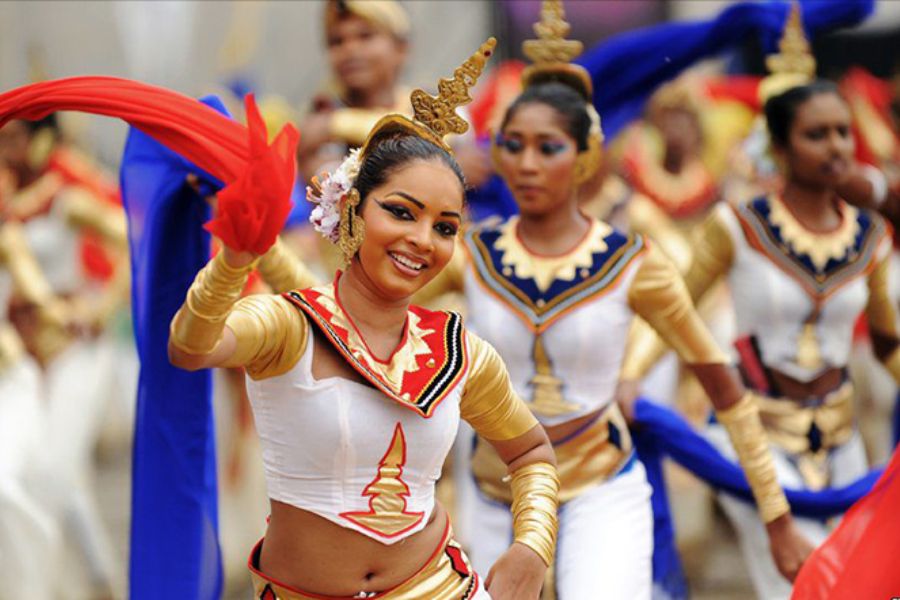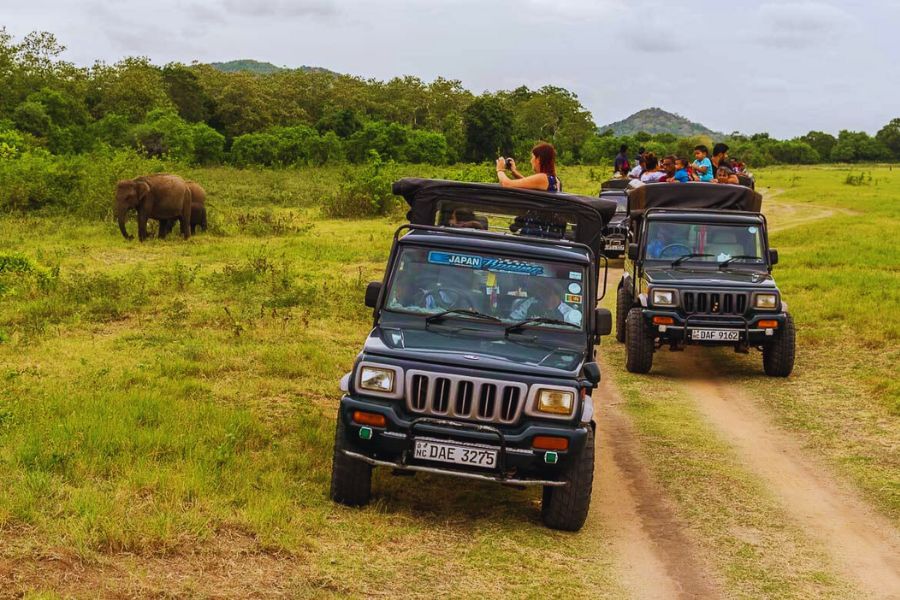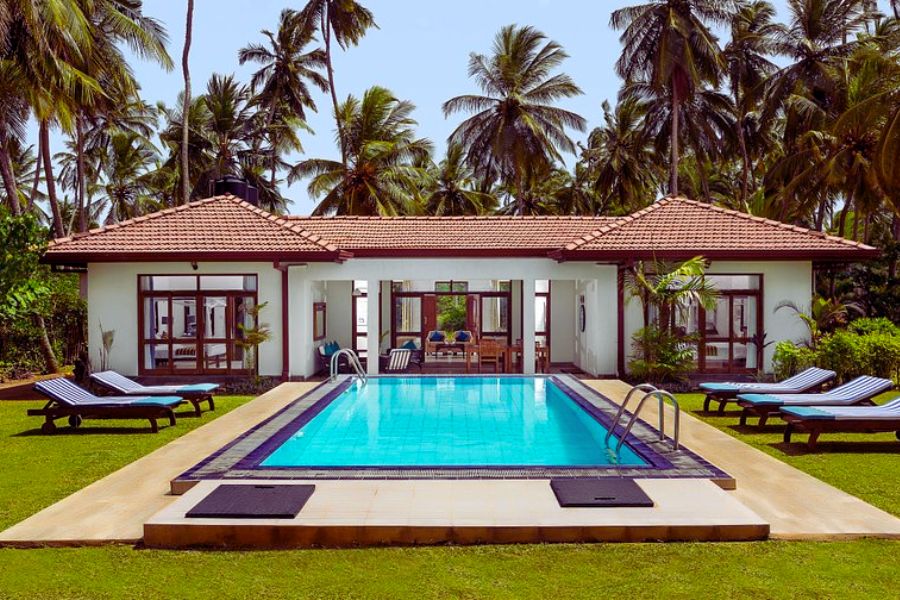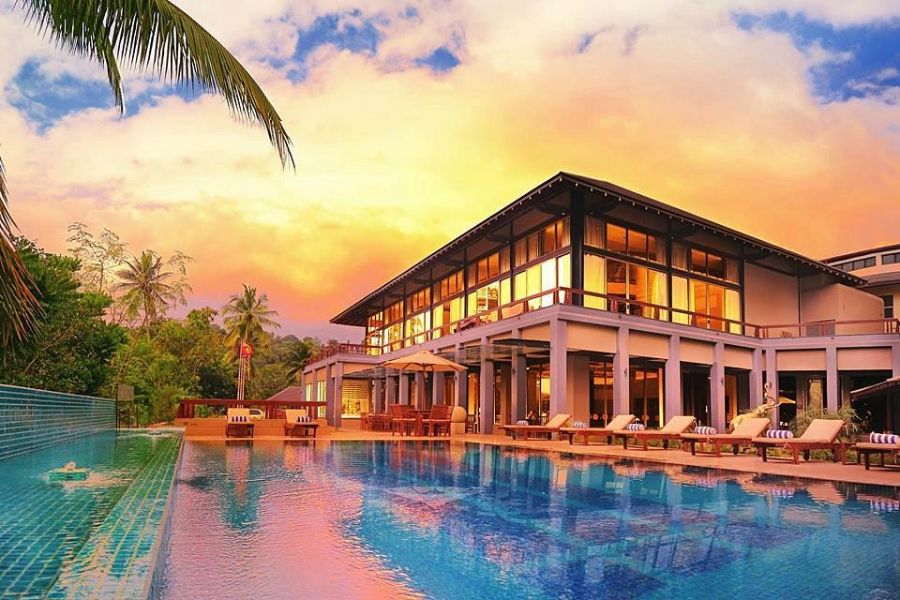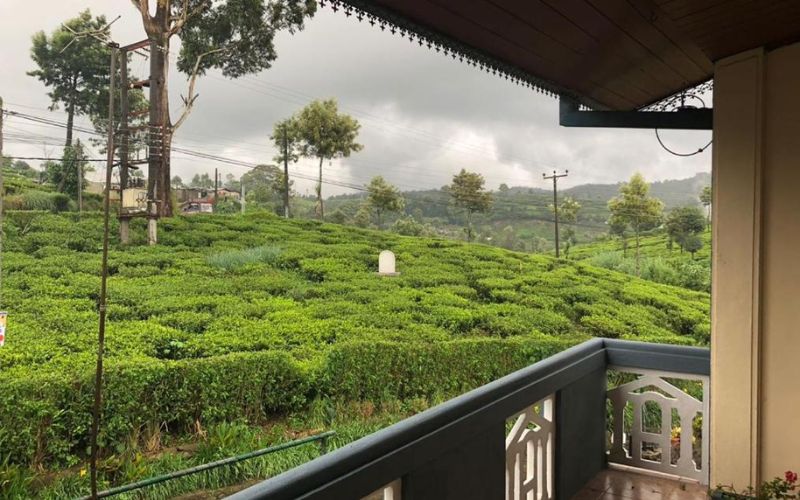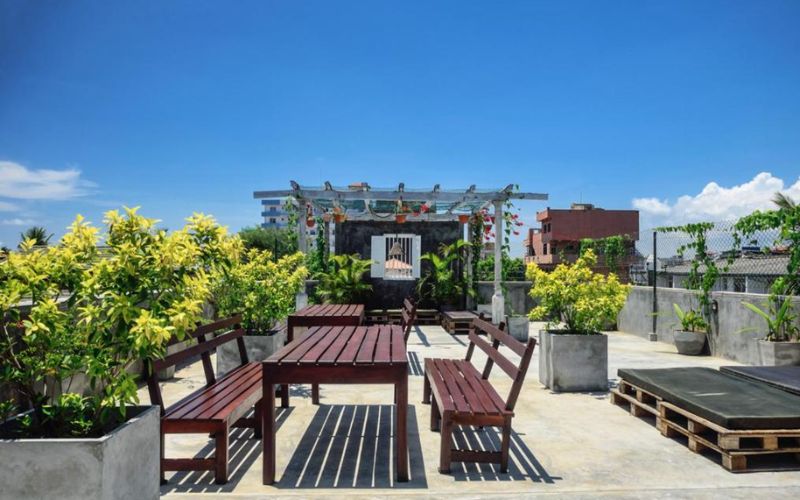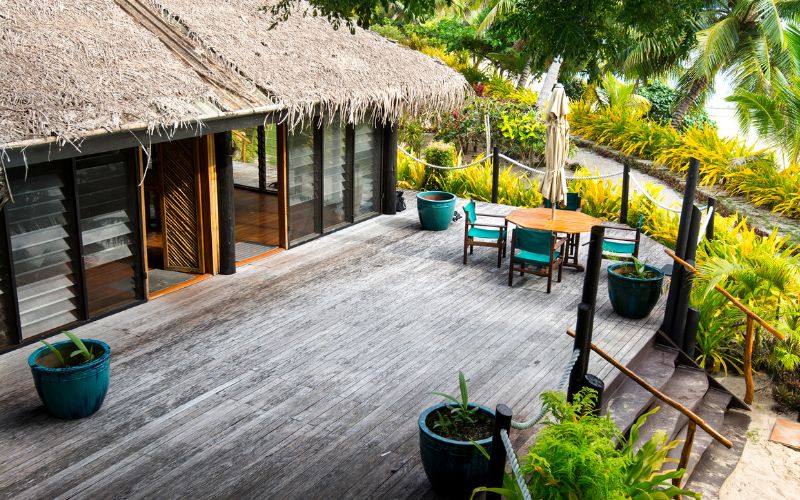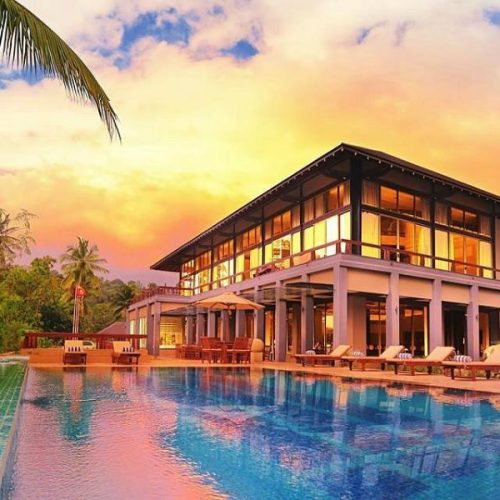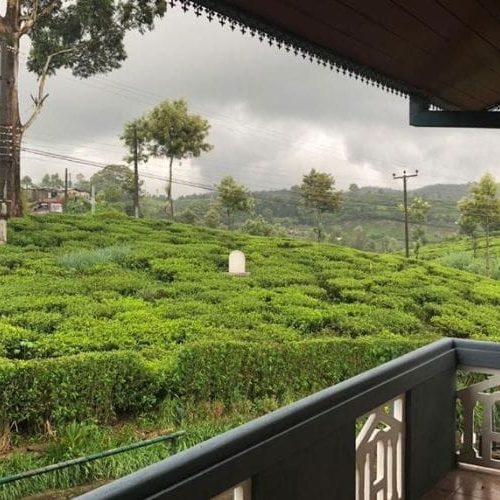Local Handicrafts and Ethical Products Gems and Jewelry Spice Markets Traditional Open-Air Markets Modern Shopping Malls Art Galleries and Curated Boutiques Popular Souvenirs to Bring Home Shopping in Sri Lanka is a vibrant cultural experience, where tradition meets modernity. From bustling local markets filled with spices, handcrafted goods, and colorful textiles, to chic boutiques and premier shopping malls in the cities, Sri Lanka offers something for every type of traveler. Whether you’re looking for unique souvenirs, precious gemstones, or authentic batik garments, shopping here offers a glimpse into the island’s diverse craftsmanship and rich cultural heritage. Local Handicrafts and Ethical Products Sri Lanka’s artisans are renowned for their intricate work in wood, brass, cane, lace, pottery, and more. Modern trends show a greater appreciation for items that are both traditional and ethically sourced. Wood carvings Masks, statues, and household décor items from Ambalangoda and Kandy are popular. Lacquerware Look for traditional tools and decorative pieces with vibrant color finishes. Batik & handloom fabrics Vibrant garments, scarves, and wall hangings made with natural dyes. You can find these in specialized stores in Colombo, Galle, and Kandy. Eco-friendly products Look for innovative souvenirs like notebooks made from recycled elephant dung paper and bags woven from coconut fiber (coir) or palmyrah leaves. Notable places Laksala (government-run stores), Barefoot, Paradise Road, and local artisan shops in Galle Fort and Ambalangoda. Gems and Jewelry Sri Lanka is known as the “Island of Gems” for good reason. Sapphires (especially the coveted Ceylon blue sapphire), rubies, topaz, and moonstones are widely available. Ratnapura is the gem capital, with mines and gem museums. Always buy from government-certified stores to ensure authenticity. Look for a certificate of authenticity from the National Gem and Jewellery Authority (NGJA). Keep an eye out for the annual FACETS Sri Lanka exhibition, a premier gem and jewelry show. Spice Markets Sri Lanka’s spice history goes back centuries. Markets and shops sell a huge variety of spices, often at great prices. Cinnamon, cardamom, cloves, nutmeg, and black pepper are staples. Ceylon cinnamon, in particular, is a prized export and a must-buy. Ayurvedic products These include balms, oils, and herbal teas. Best places The chaotic but fascinating Pettah Market in Colombo, the Kandy Market Hall, and specialized spice gardens in Matale. Traditional Open-Air Markets These markets are the heart of local trade and a sensory overload in the best way possible. Pettah Market (Colombo) This sprawling bazaar is a must-visit for anyone seeking an authentic, chaotic shopping experience. It’s not just one market but a collection of interconnected streets selling everything from fresh produce and textiles to electronics. Be prepared to bargain. Kandy Central Market A vibrant hub for locals and tourists alike, offering a diverse range of fresh fruits, vegetables, spices, and textiles. Galle Dutch Market A colonial-era market that sells fresh produce and is a great starting point for exploring the charming boutiques and galleries inside Galle Fort. Bargaining is expected at these markets, but always do so respectfully and with a friendly demeanor. Modern Shopping Malls If you’re looking for international brands, air-conditioned comfort, and entertainment, Colombo’s mall scene has expanded significantly. One Galle Face Mall (Colombo) The largest and most luxurious mall, offering a mix of high-end international and local brands, cinemas, and a diverse food court with panoramic ocean views. Colombo City Centre (CCC) A premier destination in the heart of the city with a great selection of retail, dining, and entertainment options. Havelock City Mall A newer addition, providing another large-scale retail and dining experience with a focus on family-friendly entertainment. Other options Crescat Boulevard, Marino Mall, and Kandy City Centre continue to be popular choices. Art Galleries and Curated Boutiques Sri Lanka’s contemporary art and design scene is thriving. Barefoot (Colombo) A legendary institution known for its colorful, handwoven textiles, elegant clothes, books, and home décor. Paradise Road Elegant homeware, design pieces, and a unique gallery-like shopping experience. Laksala (Government-run) A reliable source for a wide variety of quality handicrafts and souvenirs, perfect for one-stop souvenir shopping. Dutch Hospital Shopping Precinct (Colombo & Galle) This historic colonial building has been converted into a charming complex of restaurants, cafes, and high-end boutiques. Popular Souvenirs to Bring Home Sri Lanka’s contemporary art and design scene is thriving. Ceylon tea A staple gift. Visit a tea factory or a specialty shop for the best quality. Hand-carved elephant figurines and traditional masks. Spices and Ayurvedic products. Batik sarongs or shirts. Local paintings and postcards. Palmyrah or cane woven baskets and mats. Whether you’re wandering through vibrant bazaars or Browse curated designer shops, shopping in Sri Lanka offers more than just goods. It’s a chance to connect with the island’s soul. Let your purchases carry the stories, colors, and warmth of the people you meet along the way, knowing you are supporting the artisans and traditions that make Sri Lanka so unique.
Hiking and Trekking in Sri Lanka
Sri Lanka is a paradise for hiking and trekking enthusiasts. With its lush rainforests, misty mountains, scenic valleys, and cool highland climates, the island offers an array of hiking trails for all skill levels, from leisurely walks through tea estates to challenging climbs up rugged peaks. Whether you’re chasing breathtaking sunrises, ancient trails, or hidden waterfalls, Sri Lanka’s diverse terrain will leave you in awe. Popular Hiking and Trekking Trails The Pekoe Trail – Central Highlands (Kandy to Nuwara Eliya) A new and internationally recognized long-distance walking trail, The Pekoe Trail spans over 300 kilometers through the heart of Sri Lanka’s tea country. Divided into 22 stages, it’s suitable for various fitness levels and can be hiked in its entirety or as single-day treks. The trail is well-marked with a dedicated app, guiding you through tea plantations, remote villages, and breathtaking landscapes. Adam’s Peak (Sri Pada) – Ratnapura/Nuwara Eliya One of Sri Lanka’s most revered pilgrimage sites, Adam’s Peak is known for the sacred footprint at the summit. The hike begins at night to reach the peak by sunrise. It’s a challenging climb with over 5,000 steps, offering a spiritually and visually uplifting experience. The official pilgrimage season runs from December to May, when the path is lit and crowded with fellow pilgrims. Ella Rock – Ella A favorite among backpackers, this hike is a medium-difficulty trek that takes about 2-3 hours. The trail offers panoramic views of Ella Gap, Little Adam’s Peak, tea plantations, and the surrounding hills. While it’s a popular hike, hiring a local guide is still recommended as some sections can be confusing. Little Adam’s Peak – Ella Easier and more accessible than Ella Rock, this gentle hike is perfect for beginners and families. The path winds through lush greenery and tea estates and rewards hikers with stunning views of the valley and Ella Rock itself. It’s a great option for a sunrise or sunset walk. Horton Plains & World’s End – Nuwara Eliya Located in a national park, this relatively flat trail is about 9.5 km round trip and passes through misty cloud forests and grasslands, culminating in a dramatic drop called “World’s End.” Start your hike early in the morning (by 6 or 7 a.m.) to beat the afternoon mists that can obscure the view. Knuckles Mountain Range – Kandy/Matale This UNESCO-listed biodiversity hotspot is a haven for adventurous trekkers. Multiple trails pass through remote villages, forests, and waterfalls. Guided treks are highly recommended due to the complexity of the terrain and for a deeper understanding of the unique ecosystems. The popular Dothalugala and Mini World’s End trails offer distinct experiences. Pidurangala Rock – Sigiriya This hike is a shorter alternative to climbing Sigiriya Rock and offers a spectacular panoramic view of the Sigiriya Fortress from the summit. The trail includes a mix of stone stairs and some bouldering toward the top, making it a fun and rewarding climb. Sinharaja Rainforest Trails – Sabaragamuwa / Southern Province UNESCO-listed Sinharaja offers guided nature trails through dense, ancient rainforest with rich biodiversity. Expect to see exotic birds, insects, reptiles, and endemic flora. A local guide is mandatory to navigate the protected reserve and spot its hidden wonders. Kirigalpoththa – Horton Plains National Park For seasoned hikers, Kirigalpoththa is Sri Lanka’s second-highest peak. This is a strenuous 14-kilometer round trip that is not for the faint of heart, but the rewarding views from the summit make it a must-do for experienced trekkers seeking a formidable challenge. Bambarakanda Falls & Devil’s Staircase – Ohiya This challenging trail takes you to Sri Lanka’s tallest waterfall, Bambarakanda, and includes a difficult segment known as the “Devil’s Staircase.” This hike is best for experienced hikers who are well-prepared for steep, rugged terrain and a long-distance trek. Tips for Hikers in Sri Lanka Best Season The dry season, from December to March, is generally the best time for hiking in the Central Highlands, as the weather is cooler and the trails are less muddy. However, the shoulder seasons of April-May and October-November can also be rewarding with fewer crowds and occasional showers. The pilgrimage season for Adam’s Peak runs from December to May. What to Bring Always carry sufficient water, high-energy snacks, a basic first-aid kit, and insect repellent. Wear sturdy hiking boots with good ankle support. Layered clothing is essential due to rapid weather changes, and a rain jacket is highly recommended for all seasons. Guides While popular trails like Little Adam’s Peak can be done solo, hiring a local guide is strongly recommended for difficult or remote treks like Knuckles, Sinharaja, and The Pekoe Trail. They not only ensure your safety but also provide valuable insights into the local flora, fauna, and culture. Safety Inform someone of your hiking route and expected return time. Mobile reception may be limited in remote areas. Be mindful of wildlife and local customs. Eco-Friendly Practices Respect the natural environment. Stick to marked paths, avoid littering, and do not disturb wildlife. Support local communities by using their services and purchasing local products. Let Sri Lanka’s trails guide your soul through landscapes shaped by time and tradition. From ancient pilgrim paths to serene forest hikes, each journey offers a chance to reconnect with nature and discover a deeper sense of place. Embrace the rhythm of the land, one step at a time.
Festivals and Events in Sri Lanka
Experience the Heartbeat of the Island Sri Lanka is a land of celebration where age-old traditions, religious devotion, colorful pageantry, and community spirit come together throughout the year. From grand Buddhist processions to vibrant Hindu rituals, Islamic and Christian festivals, and cultural harvest feasts, there’s always something happening on this island. Being part of a festival in Sri Lanka is a chance to witness the soul of its people in full color. Esala Perahera (Kandy – July / August) One of Asia’s grandest cultural spectacles, the Kandy Esala Perahera honors the Sacred Tooth Relic of the Buddha. Lavish parades with drummers, fire dancers, traditional dancers, and ornately dressed elephants light up the streets of Kandy for 10 nights. A must-see for any cultural traveler. Sinhala & Tamil New Year (Island-wide – April) Celebrated with firecrackers, traditional games, rituals, and festive meals, the Sinhala and Tamil New Year marks the solar transition. It’s a joyous time with village fairs, sweets, oil lamps, and a beautiful spirit of unity and renewal. Vesak Festival (Island-wide – May) A deeply spiritual celebration commemorating the birth, enlightenment, and death of the Buddha. Homes and temples are adorned with paper lanterns and light displays, while locals offer free food and drinks (dansal) to passersby. The atmosphere is peaceful, magical, and generous. Nallur Festival (Jaffna – July / August) Held at the Nallur Kandaswamy Kovil, this 25-day Hindu festival is known for its vibrant processions, traditional music, rituals, and acts of devotion. It’s one of the most iconic and visually stunning events in northern Sri Lanka. Kataragama Festival (Southern Sri Lanka – July / August) A multi-religious festival attracting Buddhist, Hindu, and Muslim devotees. Watch pilgrims perform acts of penance like fire-walking and piercing as they seek blessings from Lord Kataragama. The energy is intense, spiritual, and unforgettable. Eid-ul-Fitr & Eid-ul-Adha (Island-wide, especially in Muslim communities) Marking the end of Ramadan and the Hajj pilgrimage, these Islamic festivals are observed with prayers, feasting, and charity. Visitors to Muslim areas like Beruwala or Galle can witness the warm hospitality and celebrations. The dates are determined by the lunar calendar and vary each year. Christmas & Good Friday (Island-wide – December & March / April) Sri Lanka’s Christian communities light up their churches and homes with decorations and nativity scenes. Midnight masses, carols, and charity events create a serene and festive atmosphere. Christmas is celebrated on December 25th each year. Colombo Music Festival & Art Events (Colombo – Varies) Modern Sri Lanka also embraces global music, film, and art. Events like the Colombo Music Festival and Colomboscope (a contemporary art festival) offer a platform for fusion, dance, and creativity. Check local listings for up-to-date schedules for these events. Galle Literary Festival (Galle – January) A world-renowned festival celebrating literature, poetry, and the arts. Held within the atmospheric Galle Fort, it brings together international authors, artists, and literary lovers in a charming seaside setting. Bonus: Full Moon Poya Days (Every Month) Each month’s full moon day is a public holiday and marks a significant Buddhist event — ideal for visiting temples, observing rituals, or simply experiencing the calm and reverence that sweeps across the nation. The dates for these days shift each month. Plan your visit to align with Sri Lanka’s festivals for a truly immersive cultural adventure. Whether you’re seeking spiritual insight, cultural discovery, or community joy, there’s a festival waiting for you.
Cultural Tours and Workshops in Sri Lanka
Traditional Kandyan Dance & Drumming Workshops (Kandy, Habarana) Sri Lanka is a land steeped in history and vibrant traditions, offering travelers not just scenic views but deeply immersive cultural experiences. From ancient dance forms and intricate culinary arts to centuries-old craftsmanship, the island is a living museum, continually evolving yet firmly rooted in its heritage. Engaging in cultural tours and hands-on workshops allows visitors to deeply connect with the soul of Sri Lanka, learn directly from local experts, and take home more than just memories — a true understanding and appreciation for its rich identity. With a growing interest in authentic travel, Sri Lanka’s cultural offerings provide a unique opportunity to participate in and preserve traditions, making your journey truly meaningful. Traditional Kandyan Dance and Drumming Workshops (Kandy, Habarana) Experience the rhythmic movements, elaborate costumes, and powerful drumming of Sri Lanka’s iconic Kandyan dance. Several cultural centers, particularly in Kandy, offer short and full-day workshops, teaching basic steps, intricate drumming patterns, and providing insights into the historical and cultural significance of these vibrant performances. Some venues, like the newly opened Cultural Center in Habarana, also offer immersive experiences. Batik & Handloom Weaving Workshops (Kandy, Galle, Ella) Learn the age-old art of batik or traditional handloom weaving. Two cherished textile methods in Sri Lanka. Workshops are often led by skilled local artisans who guide you through the intricate wax-resist dyeing techniques of batik or the rhythmic process of handloom weaving. You’ll have the chance to create your own unique sarong, scarf, or wall hanging, a perfect handmade souvenir. You can find these workshops in Kandy, Galle Fort, and near Ella. Sri Lankan Cooking Classes (Negombo, Ella, Colombo, Kandy, Galle) Embark on a culinary journey through the vibrant world of Sri Lankan spices, aromatic curry blends, and traditional clay pot techniques. Local families and boutique cooking schools across the island offer immersive classes. Often, the experience begins with a visit to a local market to select fresh ingredients, followed by hands-on preparation and cooking of an authentic, multi-dish Sri Lankan meal from scratch, which you then get to savor. Ayurveda & Herbal Wellness Workshops (Dambulla, Habarana, Matale, Southern Coast) Sri Lanka’s heritage in herbal healing and Ayurveda (the “science of life”) is world-renowned. Dive into this ancient holistic system by learning about medicinal plants, the preparation of traditional oils, and simple herbal remedies from experienced Ayurvedic doctors or village practitioners. Many wellness retreats across the island, from the cultural triangle to the southern coast, also integrate these workshops into their programs, emphasizing natural balance and well-being. Mask Carving & Painting Workshops (Ambalangoda, Galle Fort) Visit the coastal town of Ambalangoda — famous for its vibrant ritual masks used in traditional folk dances and healing ceremonies. Here, you can learn directly from master carvers how these intricate wooden masks are made, understand their symbolic meanings, and even try your hand at painting a pre-carved mask to take home. Workshops are also available in Galle Fort, connecting you with this rich artistic tradition. Gemology Tours & Jewelry Workshops (Ratnapura, Kandy, Galle) Go behind the scenes in Sri Lanka’s world-famous gem industry, particularly in Ratnapura, the “City of Gems.” Tours often include visits to traditional gem mines, a walk through gem museums, and engaging jewelry design sessions where you can sometimes participate in creating a unique ring or pendant, showcasing the island’s precious stones. Knowledgeable guides also offer insights into identifying and valuing gems. Village Cultural Tours & Rural Life Experiences (Sigiriya, Habarana, Dambulla, Anuradhapura) Explore the authentic rural heart of Sri Lanka through guided village walks. These immersive experiences often include traditional bullock cart rides, boat trips on scenic lakes, and a delicious, authentic lunch served in a local home. Many tours also feature hands-on demonstrations of traditional crafts like pottery making, insights into paddy farming, and captivating local storytelling sessions, offering a true taste of village life. Temple Etiquette & Meditation Workshops (Anuradhapura, Kandy, Colombo) Discover the profound spiritual side of Sri Lanka with workshops in Buddhist meditation, temple etiquette, and insights into sacred rituals and ancient temple architecture. Conducted by experienced monks or knowledgeable lay practitioners, these sessions offer a peaceful retreat and a deeper understanding of Buddhist philosophy and practice. Key sites for such experiences include Anuradhapura, Kandy, and selected centers in Colombo. Puppet Making & Folk Theatre (Ambalangoda, Southern Coast) Dive into the enchanting world of Sri Lankan puppetry — a traditional art form kept alive by a few dedicated families. Primarily found in areas like Ambalangoda, you can learn to craft and manipulate traditional string puppets, understanding their role in ancient folk stories and vibrant village performances that often carry moral lessons and entertainment. Language & Traditional Script Lessons (Various cultural centers, homestays) For those eager for a deeper dive, some cultural centers and homestays offer introductory language classes in Sinhala or Tamil. A unique highlight can be learning to write your name or simple phrases in beautiful Sinhala or Tamil calligraphy on traditional palm leaves or handmade paper, a delightful cultural keepsake. Traditional Craft & Artisan Studio Visits (Various locations) Beyond specific workshops, many regions offer opportunities to visit local artisans in their studios. Discover the intricate process of creating traditional lacquerware (Pahala, Kandy district), Dumbara mat weaving (Kandy district), wood carving, or brassware, and purchase authentic handmade items directly from the creators. Why Choose Cultural Tours and Workshops in Sri Lanka? These cultural experiences go beyond typical sightseeing, offering profound opportunities to connect with the essence of Sri Lanka. Connect with Local Life Engage directly with local communities and families, gaining authentic insights into their daily lives, customs, and traditions. Hands-On Learning Participate actively in traditional crafts, culinary arts, or ancient practices, creating lasting memories and skills. Support Local Artisans By engaging in workshops and purchasing directly, you contribute to the preservation of traditional arts and support the livelihoods of local artisans. Deeper Understanding Move beyond observation to truly understand the stories, meanings, and historical significance behind Sri Lankan culture and heritage. Personalized & Immersive Many
Adventure and Outdoor Activities in Sri Lanka
Hiking and Trekking Surfing Camping and Glamping Cycling and Mountain Biking White-Water Rafting and Water Sports Wildlife Safaris Air Adventures Rock Climbing and Abseiling Diving and Snorkeling Dolphin and Whale Watching Boating and Fishing Unique Experiences Tips for Adventure Travel in Sri Lanka Sri Lanka is a playground for outdoor lovers and thrill-seekers. From misty mountains and roaring rivers to tropical jungles and pristine beaches, the island offers a wide range of adventure and outdoor experiences for every type of traveler. Whether you’re hiking through the Knuckles Range, surfing the waves of Arugam Bay, or spotting leopards on safari, Sri Lanka delivers adrenaline-pumping fun and unforgettable natural beauty. Below is a detailed guide to the best adventure and outdoor activities you can experience across the island. Hiking and Trekking Sri Lanka’s diverse terrain makes it a hiker’s paradise, with trails ranging from easy strolls through tea plantations to challenging mountain ascents. Ella Rock and Little Adam’s Peak (Ella) Ideal for both casual and experienced hikers. Enjoy panoramic views of the hill country, lush tea plantations, and valleys. Adam’s Peak (Sri Pada) A sacred pilgrimage site offering a deeply rewarding sunrise view after a challenging night climb of over 5,000 steps. Knuckles Mountain Range A UNESCO World Heritage Site renowned for its rich biodiversity. Multi-day treks take you through dense forests, past cascading waterfalls, and into remote traditional villages. Horton Plains National Park Home to the dramatic cliff of World’s End, this highland plateau offers invigorating hikes through unique cloud forests and expansive grasslands, with sightings of diverse wildlife. The Pekoe Trail A newly launched, long-distance hiking route (298km) from Kandy to Nuwara Eliya. This well-marked trail guides you through tea estates, wild grasslands, and mountain forests, with dedicated online resources and a mobile app for navigation. Sinharaja Forest Reserve Trek through this UNESCO-listed virgin rainforest, a biodiversity hotspot teeming with endemic species. Guided tours are mandatory to explore its rich ecosystem. Surfing Sri Lanka has emerged as a top surfing destination, offering consistent waves for all skill levels across its beautiful coastlines. Arugam Bay (East Coast) A world-renowned surf break for both advanced and beginner surfers. The peak season here is typically May–October, offering fantastic swells and a vibrant surf scene. Hikkaduwa (Southwest Coast) Ideal for beginners and intermediate surfers, with plenty of surf schools, board rentals, and a relaxed beach atmosphere. Weligama Known for its gentle, long waves, making it an excellent spot for beginners to learn and practice. Surfboard rentals and instructors are readily available. Mirissa and Midigama Popular spots on the South Coast with consistent swells and a laid-back surfer crowd, offering waves for various skill levels. Camping and Glamping Immerse yourself in nature with unforgettable camping and glamping experiences, from wildlife-rich national parks to serene beach fronts. Yala, Wilpattu and Udawalawe National Parks Experience luxury safari camping or glamping, bringing you incredibly close to Sri Lanka’s iconic wildlife, including leopards, elephants, and sloth bears. Knuckles and Riverstone Enjoy mountain camping amidst stunning scenic views and cool weather, with opportunities for treks and nature walks. Beach Camping (Arugam Bay, Kalpitiya) Sleep under the stars with the soothing sound of waves and refreshing ocean breezes, often with basic to luxury tented options. Sinharaja Rainforest Unique jungle camping experiences that allow you to truly immerse yourself in one of the world’s most biodiverse rainforests, among rare birds, reptiles, and tropical flora. Cycling and Mountain Biking Explore Sri Lanka’s diverse landscapes on two wheels, from ancient ruins to verdant tea estates and coastal paths. Ella to Haputale Scenic hill routes through lush tea estates, past cascading waterfalls, and amidst cloud forests, offering rewarding views and invigorating rides. Polonnaruwa Discover the ancient city ruins and historical sites at your own pace on a bicycle, with well-paved paths and minimal traffic making it a delightful experience. Galle Fort and Coastline Rent bikes to explore the charming colonial streets of Galle Fort or cruise along the scenic southern coastline, soaking in the coastal vibes. White-Water Rafting and Water Sports Sri Lanka’s rivers and coastal waters offer a thrilling array of aquatic adventures. Kitulgala The ultimate destination in Sri Lanka for white-water rafting. Navigate exciting rapids on the Kelani River, or combine it with canyoning, stream sliding, and exploring caves and waterfalls. Bentota and Kalpitiya Hubs for a wide range of water sports, including water skiing, jet skiing, windsurfing, kite surfing (especially Kalpitiya), banana boating, and more. Negombo Lagoon and Bolgoda Lake Popular spots for calmer water activities like kayaking, stand-up paddleboarding, sailing, and canoeing, perfect for exploring mangrove ecosystems. Wildlife Safaris Sri Lanka is one of the world’s best places for wildlife viewing, offering guaranteed sightings of magnificent creatures in their natural habitats. Yala National Park Home to one of the highest densities of leopards in the world, alongside elephants, sloth bears, and crocodiles, promising an exhilarating safari experience. Udawalawe National Park One of the best places globally to spot wild elephants up close, with a high chance of year-round sightings. Wilpattu National Park Sri Lanka’s largest and often less crowded national park, known for its unique “willus” (natural lakes) and excellent opportunities to spot leopards and endemic bird species. Minneriya & Kaudulla National Parks Witness “The Gathering,” the world’s largest seasonal congregation of wild Asian elephants (typically July–October), a truly awe-inspiring spectacle. Gal Oya National Park Offers unique boat safaris on the Senanayake Samudraya reservoir, providing a rare chance to see elephants swimming between islands. Air Adventures Gain a breathtaking new perspective of Sri Lanka from above with these thrilling air-based activities. Hot Air Ballooning (Dambulla/Sigiriya) Soar serenely over ancient ruins, lush forests, and tranquil lakes during a sunrise flight, offering unparalleled photographic opportunities and unforgettable views. Scenic Helicopter Tours Take to the skies for panoramic views of Sri Lanka’s incredibly diverse landscapes—from its golden beaches and vibrant cultural triangle to the misty peaks of the hill country. Skydiving While seasonal and subject to specific operators, occasional skydiving opportunities are organized in certain areas, providing an ultimate adrenaline rush with stunning
Villas and Resorts in Sri Lanka
Why Choose Villas and Resorts in Sri Lanka? Top Beachfront Villas and Resorts Hill Country Villas and Resorts Jungle and Safari Resorts Cultural Triangle Villas and Resorts East Coast Villas and Resorts Wellness and Nature Focused Villas Types of Villas in Sri Lanka Booking Tips Who Should Choose Villas and Resorts Sri Lanka is home to some of the most exquisite villas and resorts in South Asia, offering everything from secluded beachfront escapes and romantic jungle hideaways to ultra-luxurious retreats in the hills and cultural cities. Whether you’re seeking privacy, family-friendly accommodations, or five-star indulgence, the island’s villas and resorts deliver unforgettable stays paired with warm Sri Lankan hospitality. These properties are ideal for honeymooners, families, groups of friends, or anyone wanting to experience the ultimate in space, style, and scenery. Why Choose Villas and Resorts in Sri Lanka? Privacy and Space Villas often offer entire properties with private pools, kitchens, and gardens—perfect for couples, families, or groups seeking ultimate seclusion. Luxury Amenities Resorts provide high-end facilities such as world-class spas, state-of-the-art fitness centers, yoga shalas, exquisite beachfront dining, personalized butler service, and curated cultural or adventure experiences. Scenic Locations From golden beaches and misty mountains to lush jungles and serene riversides, the settings are breathtaking and designed to harmonize with nature. Personalized Service Most villas come with dedicated staff, including private chefs, housekeepers, and local guides, ensuring a tailor-made stay that caters to your every whim. Ideal for Long Stays With home-like amenities and expansive layouts, villas are perfect for extended holidays, multi-generational family gatherings, or tranquil digital nomad getaways. Sustainability Focus Many new and established properties prioritize eco-conscious practices, using local materials, renewable energy, and supporting local communities, offering a luxurious yet responsible travel experience. Top Beachfront Villas and Resorts Experience unparalleled luxury with direct access to Sri Lanka’s stunning coastlines. Cape Weligama (Weligama) A spectacular Relais & Châteaux resort perched on a dramatic cliff, featuring expansive private villas with infinity pools and world-class dining, all offering breathtaking panoramic views of the Indian Ocean. Amanwella (Tangalle) A masterpiece of modern luxury, this beach resort offers minimalist, ocean-facing suites nestled amidst swaying coconut groves, providing direct access to a pristine, crescent-shaped beach. ÀNI Sri Lanka (Near Galle) An all-inclusive private villa resort offering exclusive use of its stunning beachfront estate. Designed with tropical modernism, it provides panoramic ocean views and highly personalized service for families and groups up to 30 guests. Ahu Bay (Ahungalla) An intimate, relaxed beach house combining authentic beach life with contemporary luxury. Perched on Ahungalla Point, it offers tastefully designed villas and suites with semi-private lap pools, just steps from the ocean. The Frangipani Tree (Unawatuna) A stylish and tranquil beachfront boutique villa with a limited number of suites, ensuring an exclusive and serene atmosphere right on the sand. Sielen Diva (Talpe) A contemporary 7-bedroom luxury villa directly on the beach, perfect for larger groups or families seeking full service, gourmet meals, and modern comforts. KK Beach (Habaraduwa) A sleek, chic beachfront resort near Galle, offering stylish rooms, a beautiful beachfront pool, and a calm, sophisticated vibe. Uga Prāva (Tangalle) (Anticipated to be fully operational/recently launched as of mid-2025) Set to be a luxurious addition to Tangalle’s tranquil shores, promising an indulgent retreat designed for romance and relaxation. Hill Country Villas and Resorts Escape to the cool, misty embrace of Sri Lanka’s central highlands, amidst verdant tea plantations and rolling hills. Ceylon Tea Trails (Hatton) A legendary collection of five meticulously restored colonial-era bungalows set amidst working tea plantations. Offers all-inclusive stays with personal butlers, gourmet dining, guided walks, and immersive tea experiences. Goatfell (Nuwara Eliya) A luxurious villa-style bungalow offering just four suites, surrounded by the iconic rolling hills and misty tea country, providing an intimate and exclusive escape with a personal chef. Living Heritage Koslanda (Koslanda) A remote luxury eco-resort designed for harmony with nature. Villas feature open-air bathtubs, stunning forest views, and access to hidden waterfalls, providing a deeply immersive and tranquil experience. Stafford Bungalow (Nuwara Eliya) A beautifully restored planter’s bungalow that offers a peaceful and elegant escape. Features manicured gardens, cozy fireplaces, and attentive butler service, embodying colonial charm. Jungle and Safari Resorts For unparalleled wildlife encounters and luxurious immersion in Sri Lanka’s wild heart. Wild Coast Tented Lodge (Yala) A unique Relais & Châteaux luxury tented camp located at the edge of Yala National Park. Features distinctive dome-shaped “cocoon” tents, gourmet dining, and exhilarating private safaris for an extraordinary wildlife experience. Uga Chena Huts (Yala) Offering luxurious, standalone cabins with private plunge pools, situated just moments from Yala National Park. It provides an exclusive glamping experience with direct access to safari adventures. Leopard Trails (Wilpattu & Yala) A premier luxury safari camp providing immersive game drives, exquisite dining under the stars, and elegantly appointed tents with en-suite bathrooms, focusing on responsible wildlife viewing. Gal Oya Lodge (Gal Oya National Park) Nestled near the relatively untouched Gal Oya National Park, this eco-lodge emphasizes sustainability. It offers spacious bungalows and unique boat safaris to spot elephants swimming in the park’s lakes. Cultural Triangle Villas and Resorts Discover luxury amidst ancient history and vibrant cultural heritage. Jetwing Vil Uyana (Sigiriya) A pioneering luxury eco-resort where villas are set amidst recreated wetlands, paddy fields, and forest areas near the iconic Sigiriya Rock. Perfect for those seeking nature, luxury, and heritage. Uga Ulagalla (Anuradhapura) A sprawling luxury boutique hotel featuring individual villas with private pools, set amidst 58 acres of lush greenery near ancient ruins. Offers horseback riding and village bicycle excursions. Kalundewa Retreat (Dambulla) A serene and aesthetically pleasing retreat with contemporary villas and chalets set beside tranquil lakes and rice fields, seamlessly blending modern design with rustic charm. Aliya Resort & Spa (Sigiriya) A well-known resort boasting stunning views of Sigiriya Rock, a large swimming pool, and a mix of modern rooms and luxury chalets, catering to diverse preferences. Back of Beyond Pidurangala (Sigiriya) Offers eco-friendly lodges including treehouses and bungalows built with locally sourced materials, nestled in natural jungle surroundings,
Hotels in Sri Lanka
Why Choose Hotels in Sri Lanka? Top Hotels by Region Hotel Booking Tips What to Expect in Sri Lankan Hotels Sri Lanka boasts a wide range of hotels catering to every type of traveler—from luxury seekers and honeymooners to business travelers and families. Whether you’re staying in the vibrant capital of Colombo, exploring the cultural wonders of Kandy, or relaxing on a beach in Mirissa, the island offers hotels that combine comfort, elegance, and exceptional service. With world-class amenities, scenic views, and warm Sri Lankan hospitality, hotels in Sri Lanka ensure a memorable stay. Why Choose Hotels in Sri Lanka? Variety of Options From international hotel chains to charming boutique hotels, Sri Lanka offers accommodations for all budgets and preferences. Prime Locations Many hotels are located near top attractions like beaches, ancient cities, tea plantations, and national parks. Exceptional Service Sri Lankan hospitality is world-renowned, with staff often going the extra mile to make guests feel welcome. Luxury Amenities High-end hotels offer spas, infinity pools, fine dining, yoga, and even private beaches. Convenience Hotels often provide concierge services, tour bookings, airport transfers, and multilingual staff. Top Hotels by Region in Sri Lanka Colombo (Capital City) Ideal for business travelers, shopping, nightlife, and cultural exploration. Cinnamon Grand Colombo A well-established 5-star hotel offering luxury accommodations, a wide array of international and local restaurants, a rejuvenating spa, and excellent access to Colombo’s commercial and entertainment hubs. Cinnamon Lakeside Colombo A tranquil resort-style hotel nestled on the banks of Beira Lake, offering serene views, a large free-form swimming pool, multiple dining options, and a full-service health club. Galle Face Hotel A colonial-era landmark hotel with unparalleled beachfront views, rich historical charm, and a prime location directly on the iconic Galle Face Green. The Kingsbury Colombo An elegant 5-star hotel centrally located with breathtaking views of the Indian Ocean and Galle Face Green, featuring multiple acclaimed dining venues and a luxurious spa. Hilton Colombo A centrally located hotel in the business district, connected to the World Trade Center, offering spacious rooms, diverse culinary options, and extensive meeting and event facilities. Taj Samudra Colombo A grand hotel set amidst sprawling gardens facing the Indian Ocean, providing elegantly appointed rooms, a variety of dining choices, and recreational facilities like an outdoor pool and tennis courts. Amari Colombo A contemporary 5-star hotel known for its stylish design, spacious rooms often with sea views, a beautiful rooftop infinity pool, and a convenient location near shopping and entertainment areas. Shangri-La Colombo Overlooking the Indian Ocean, this luxury hotel offers elegant rooms, diverse fine dining experiences, a comprehensive spa, and an urban resort feel in the heart of the city. ITC Ratnadipa, a Luxury Collection Hotel, Colombo A newly opened 5-star luxury hotel offering stunning views of the Indian Ocean and Beira Lake, notable for its unique Sky Bridge connecting two towers, featuring infinity pools and an elevated bar. Marino Beach Colombo Popular for its impressive rooftop infinity pool, direct beach access, and proximity to Colombo’s popular entertainment and shopping zones. Jetwing Colombo Seven A stylish and contemporary hotel situated in an exclusive residential area, recognized for its spacious rooms with expansive city views and an impressive rooftop pool and bar. Cinnamon Life at City of Dreams Part of an ambitious integrated resort, this luxury hotel offers modern amenities, direct access to premium retail and entertainment, and sophisticated accommodations. NH Collection Colombo A relatively newer addition to the luxury segment, offering contemporary design, comfortable accommodations, and a focus on personalized service, conveniently located in the city. Hilton Colombo Residence Offering apartment-style living with hotel amenities, ideal for longer stays, featuring spacious suites, a pool, and fitness facilities, located a short distance from the main city attractions. Mandarina Colombo A modern and stylish hotel offering comfortable accommodations, an infinity pool, and a well-equipped fitness center, with good access to key city points. Kandy (Cultural Capital)Perfect for exploring temples, botanical gardens, and the hill country. The Kandy House A luxurious boutique hotel set in a restored ancestral mansion, offering peace and serenity amidst a beautiful natural setting. Earl’s Regency Hotel Known for its commanding hilltop location, panoramic views of the Dumbara Valley, and extensive spa and recreational facilities. Cinnamon Citadel Kandy Overlooking the Mahaweli River, this hotel blends nature, elegance, and comfort with ease, providing a tranquil escape near the city. Mahaweli Reach Hotel A grand resort-style hotel situated on the banks of the Mahaweli River, offering spacious rooms, fine dining, and a large swimming pool. Grand Kandyan Hotel A modern 5-star hotel centrally located, known for its extensive facilities including multiple restaurants, a rooftop pool, and stunning city views. Amaya Hills Kandy Perched high in the Hantana mountain range, this hotel offers breathtaking views of the city and surrounding hills, alongside traditional Sri Lankan hospitality. Queen’s Hotel A historic colonial-era landmark hotel located directly opposite the Temple of the Tooth Relic and Kandy Lake, offering old-world charm and central convenience. Thilanka Hotel Kandy Situated on a hillside offering views of Kandy Lake and the city, providing comfortable accommodations with a blend of modern amenities and traditional design. Earl’s Regent Hotel A modern hotel offering comfortable accommodations, a swimming pool, and good facilities, conveniently located with easy access to Kandy’s attractions. South Coast (Galle, Mirissa, Unawatuna, Tangalle, Weligama, Bentota, Hikkaduwa) Famous for stunning beaches, whale watching, surfing, vibrant marine life, and rich colonial charm. Amangalla A distinguished heritage hotel nestled within the UNESCO-listed Galle Fort, renowned for its timeless colonial charm, exceptional service, and sophisticated luxury. Cape Weligama A breathtakingly luxurious cliffside resort featuring private villas and suites, offering unparalleled sweeping ocean views and an iconic crescent-shaped infinity pool. Anantara Peace Haven Tangalle Resort A sprawling 5-star tropical resort set amidst coconut plantations and golden beaches, offering exquisite wellness retreats, world-class dining, and serene beachfront luxury. Cantaloupe Levels, Unawatuna A stylish boutique hotel known for its modern flair, intimate atmosphere, panoramic ocean views, and close proximity to the secluded Jungle Beach. Jetwing Lighthouse (Galle) An architectural masterpiece by Geoffrey Bawa, this
Homestays in Sri Lanka
Why Stay in a Homestay in Sri Lanka? Top Homestays in Sri Lanka Advantages of Staying in a Homestay in Sri Lanka Sri Lankan homestays offer an authentic and immersive experience, allowing travelers to stay with local families and gain insight into the island’s rich culture, traditions, and everyday life. Perfect for those seeking a more personal connection to their destination, homestays are scattered across the country in urban areas, rural villages, and coastal towns. This type of accommodation is ideal for travelers who want to engage with locals, enjoy home-cooked meals, and experience the warmth of Sri Lankan hospitality firsthand. Homestays in Sri Lanka often provide basic amenities but make up for it with a warm, welcoming environment where guests can relax, learn, and immerse themselves in the local way of life. Why Stay in a Homestay in Sri Lanka? Cultural Experience Staying with a local family provides a firsthand look at Sri Lankan customs, traditions, and everyday routines. It’s a great way to learn about the island from the people who know it best. Home-cooked Meals Many homestays include traditional meals, allowing you to enjoy the unique flavors of Sri Lankan cuisine, often prepared with ingredients fresh from the garden. Warm Hospitality Sri Lankan families are known for their warmth and generosity, and staying in a homestay means you will be treated like part of the family. Budget-Friendly Homestays are typically more affordable than hotels and guesthouses, making them a popular choice for budget-conscious travelers. Personalized Experience Homestay hosts often act as informal guides, offering tips on what to see and do, and even arranging tours and transportation. Top Homestays in Sri Lanka Sigiri Thilanka Rest (Sigiriya) Located near the iconic Sigiriya Rock Fortress, this homestay offers simple, comfortable rooms and a friendly, local family atmosphere. It’s a great base for exploring nearby historical and cultural sites. Ella Homestay (Ella) Nestled in the heart of the scenic hill town of Ella, this homestay offers breathtaking views of the surrounding mountains, home-cooked meals, and easy access to hiking trails like Little Adam’s Peak. Kandy Mountain Breeze (Kandy) Just outside the city center, this homestay offers a peaceful retreat in the hills surrounding Kandy. The family-run atmosphere and delicious Sri Lankan breakfasts make it a favorite for cultural travelers. Ginganga Lodge (Galle) Located in a serene spot near the UNESCO World Heritage Site of Galle Fort, this homestay combines luxury with a family-run atmosphere, offering guests a unique blend of comfort and local experience. Polwaththa Eco Lodges (Kandy) Set in a rural village outside of Kandy, Polwaththa is an eco-friendly homestay that offers a peaceful escape in nature, with jungle treks, village walks, and authentic Sri Lankan meals. Nuwara Eliya Homestay (Nuwara Eliya) Located amidst Sri Lanka’s famous tea plantations, this cozy homestay offers stunning views and the chance to explore the highlands while enjoying the hospitality of a local family. Hilltop Bungalow (Nuwara Eliya) This quaint homestay is perfect for travelers looking to experience Sri Lanka’s cool highland climate while staying in a comfortable, traditional home near the town’s tea plantations. Tangalle Homestay (Tangalle) Just minutes from the beautiful beaches of Tangalle, this homestay offers both private rooms and local insights, making it ideal for beach lovers and those looking to explore the southern coast. The Blue Wave Homestay (Mirissa) A short walk from the famous Mirissa Beach, this homestay is perfect for surfers and beach enthusiasts. The hosts provide home-cooked meals and can arrange whale-watching tours. Rukgala Retreat (Kandy) A wellness-oriented homestay offering yoga and meditation retreats. Located on the banks of Victoria Lake, Rukgala combines a peaceful environment with luxury homestay vibes. Jungle Tide Homestay (Kandy) Surrounded by mountains and tea plantations, this homestay offers a tranquil escape in the hills. The British-Sri Lankan hosts create a relaxed, friendly environment for guests. Tissamaharama Homestay (Yala) Situated near Yala National Park, this homestay offers a comfortable stay for travelers keen on wildlife safaris. The hosts can arrange jeep safaris and provide local insights on the best wildlife spotting opportunities. Kurulu Estate Homestay (Deniyaya) Located near the Sinharaja Forest Reserve, this homestay is ideal for nature lovers who want to explore the biodiversity of Sri Lanka’s rainforests while enjoying local hospitality. Sinharaja Tranquil Homestay (Deniyaya) A serene haven on the edge of the Sinharaja Rainforest, this homestay provides direct access to nature trails and boasts comfortable accommodations with breathtaking jungle vistas. Advantages of Staying in a Homestay in Sri Lanka Cultural Immersion Experience the local way of life by staying with a Sri Lankan family. It’s a great way to learn about customs, traditions, and local cuisine. Personal Connections Build meaningful relationships with your hosts, who often treat you as a member of the family rather than just a guest. Affordability Homestays offer some of the most affordable accommodations in Sri Lanka, making them ideal for budget travelers. Authentic Meals Enjoy traditional Sri Lankan meals, usually home-cooked and featuring fresh, local ingredients. Support for Local Communities By staying in a homestay, you contribute directly to local families and communities, helping to support sustainable tourism in Sri Lanka. Homestays in Sri Lanka provide a rich and memorable experience, where visitors can connect with local people, share in their culture, and enjoy authentic Sri Lankan hospitality. Whether you’re exploring the coastal towns, the hill country, or rural villages, homestays offer a unique and personal way to discover Sri Lanka.
Guesthouses and Hostels in Sri Lanka
Why Stay in Guesthouses and Hostels in Sri Lanka? Top Guesthouses and Hostels in Sri Lanka Advantages of Guesthouses and Hostels in Sri Lanka Sri Lanka offers a wide variety of affordable accommodation options for budget travelers, including guesthouses and hostels. These are perfect for backpackers, solo adventurers, and those who prefer to explore the island on a shoestring budget. Sri Lankan guesthouses and hostels provide a comfortable, homely atmosphere where you can connect with fellow travelers and experience the island’s hospitality firsthand. While guesthouses often offer private rooms with basic amenities, hostels tend to cater to the younger crowd with dormitory-style rooms and social common areas. Both are ideal for budget-conscious travelers who seek authentic experiences, local insights, and a friendly atmosphere. Why Stay in Guesthouses and Hostels in Sri Lanka? AffordabilityGuesthouses and hostels are much more affordable than hotels, making them a great choice for budget travelers who still want clean, comfortable accommodation. Local Hospitality Staying in a guesthouse often means interacting directly with local families, who are more than willing to share insider tips on the best places to visit. Social Environment Hostels provide a lively environment, with opportunities to meet other travelers and exchange stories, making them popular for solo adventurers. Convenient Locations Many guesthouses and hostels are located in key tourist areas such as beach towns, historical sites, and cities, offering easy access to attractions. Top Guesthouses and Hostels in Sri Lanka Colombo City Hostel (Colombo) A lively and sociable hostel in the heart of Colombo, perfect for backpackers looking to explore the capital. It offers dorms and private rooms, with a rooftop terrace ideal for socializing. The Hangover Hostel (Negombo, Ella) Popular among backpackers, The Hangover Hostel provides clean dorm rooms, a relaxed vibe, and is close to major attractions in Negombo and Ella, including Negombo Beach and the scenic Ella Gap. Kandy City Hostel (Kandy) This cozy hostel offers a blend of affordable dormitory and private accommodation, making it an excellent base for exploring Kandy’s cultural landmarks, such as the Temple of the Tooth. Mango House (Galle Fort) A charming guesthouse located inside the historic Galle Fort, Mango House offers stylish yet affordable private rooms in a colonial-era building. Pedlar’s Inn Hostel (Galle Fort) Nestled within the UNESCO World Heritage site of Galle Fort, this hostel is a favorite among backpackers for its affordable rates and proximity to cultural and historical landmarks. C1 Colombo Fort (Colombo) An urban hostel with modern amenities located in the bustling Colombo Fort area, making it a perfect spot for travelers looking to explore the city’s markets, shops, and historic sites. City Rest Fort (Colombo) Offering private and dormitory rooms, City Rest Fort is centrally located in Colombo, providing easy access to landmarks like Pettah Market, the Colombo Dutch Hospital, and the Galle Face Green promenade. Sri Lanka Backpackers (Mirissa) Situated in the popular beach town of Mirissa, this hostel is a favorite among beach lovers and offers dormitory rooms close to surfing spots and whale-watching tours. Travellers’ Hostel (Hikkaduwa) Located near the beach town of Hikkaduwa, this hostel is ideal for those wanting to surf, snorkel, or explore the vibrant local nightlife. The Chill House (Arugam Bay) A relaxed and comfortable guesthouse in the surfing hotspot of Arugam Bay. The Chill House provides budget-friendly accommodation with a laid-back vibe perfect for surfers. The Spindrift Hostel (Unawatuna) Situated near the popular Unawatuna Beach, The Spindrift Hostel is a sociable place offering both dorms and private rooms, attracting travelers who want to relax by the sea. Sigiri Rock Side Home Stay (Sigiriya) This guesthouse is a great choice for travelers visiting the iconic Sigiriya Rock Fortress. It offers simple, comfortable rooms, with views of the surrounding nature and easy access to cultural sites. Mount Lavinia Beach Hostel (Mount Lavinia) Just a short walk from the beach, this hostel offers budget accommodation close to the vibrant nightlife and beachside restaurants of Mount Lavinia. Advantages of Guesthouses and Hostels in Sri Lanka Cultural Immersion Guesthouses are often family-run, allowing travelers to engage with locals, learn about Sri Lankan culture, and even enjoy homemade local food. Accessibility Most guesthouses and hostels are centrally located in tourist areas, offering easy access to transportation and sightseeing spots. Adventure & Activities Many hostels, particularly in beach towns and national park areas, offer activities like surfing lessons, whale-watching tours, safaris, and guided treks. Social Scene For solo travelers, hostels provide a great way to meet other adventurers and make travel companions for exploring Sri Lanka. Guesthouses and hostels in Sri Lanka are an excellent option for those who seek affordable, authentic, and memorable stays. Whether you’re looking for a quiet retreat in the hills or a lively beachside hostel, you’ll find a wide range of accommodations catering to every traveler’s needs and budget.
Eco-Lodges in Sri Lanka
Top Eco-Lodges in Sri Lanka Why Choose Eco-Lodges in Sri Lanka? Sri Lanka is a paradise for eco-conscious travelers, offering a wide range of eco-lodges designed to harmonize with nature while minimizing their environmental impact. These lodges blend sustainable practices with comfort and luxury, making them ideal for those who want to experience the island’s rich biodiversity, scenic landscapes, and unique wildlife responsibly. Eco-lodges are typically located in remote or protected areas, surrounded by forests, mountains, or along the coastline, providing a peaceful retreat from urban life. From tree houses to tented camps, Sri Lanka’s eco-lodges offer immersive experiences that prioritize sustainability without compromising on comfort. Top Eco-Lodges in Sri Lanka Gal Oya Lodge (Gal Oya National Park) Nestled near Gal Oya National Park, this eco-lodge emphasizes sustainability through its use of local materials and solar energy. The lodge offers spacious, open-plan bungalows and incredible views of the surrounding wilderness. Gal Oya is renowned for its unique boat safaris, where visitors can spot elephants swimming in the park’s lakes. Ulpotha (Dambulla) Ulpotha is a sustainable retreat and eco-lodge that focuses on yoga, wellness, and Ayurveda. Located in a remote jungle near Dambulla, the lodge operates on traditional village values, using no electricity in guest areas and offering organic vegetarian meals. It’s a perfect escape for those seeking spiritual rejuvenation amidst nature. Rainforest Eco Lodge (Sinharaja Rainforest) Located on the edge of the Sinharaja Rainforest, this eco-lodge is built using recycled shipping containers to minimize its environmental footprint. The lodge provides a unique stay amidst lush greenery and offers guided tours into the rainforest, known for its endemic species of birds, reptiles, and insects. Kaju Green Eco Lodge (Unawatuna) A luxury eco-lodge located in a coconut plantation near Unawatuna Beach, Kaju Green is a sustainable retreat designed with minimal impact on the environment. The lodge uses solar power, water recycling systems, and offers organic food from their own farm, allowing guests to enjoy a peaceful stay while being close to the beach. Back of Beyond Pidurangala (Sigiriya) Back of Beyond offers eco-friendly lodges near the famous Sigiriya Rock Fortress. Set amidst natural jungle surroundings, the lodge features treehouses and bungalows built with locally sourced materials. It’s a great base for exploring Sigiriya, Pidurangala, and nearby cultural sites. Kumbuk River Eco Lodge (Buttala) Known for its unique elephant-shaped eco-lodge, Kumbuk River offers an extraordinary stay along the banks of the Kumbukkan Oya River. The lodge blends sustainable architecture with luxury, providing guests with a serene environment to unwind while enjoying nearby safaris in Yala or Udawalawe National Park. Wild Grass Nature Resort (Sigiriya) Set within 30 acres of natural forest near Sigiriya, Wild Grass Nature Resort offers a luxurious eco-living experience. With just a few villas, the resort prioritizes privacy and harmony with nature, and it uses sustainable practices such as solar energy and organic farming. Saraii Village (Weerawila) Saraii Village offers a truly immersive eco-lodge experience with its treehouses and mud chalets, constructed using local materials. Located near Yala National Park and Bundala National Park, Saraii Village focuses on sustainable tourism, offering guided nature tours, birdwatching, and eco-friendly activities. Mahoora Tented Safari Camps (Yala, Udawalawe, Wilpattu) Offering luxury tented accommodation inside national parks, Mahoora Tented Safari Camps provide a unique eco-friendly glamping experience. These camps are designed to leave no trace and operate using sustainable methods, including solar power and eco-friendly waste disposal systems. Galavilla Boutique Hotel and Spa (Kandy) Located in the hill country, this eco-friendly hotel blends luxury with sustainability. Surrounded by misty mountains and tea plantations, Galavilla incorporates eco-conscious practices like rainwater harvesting, solar power, and organic farming, making it a serene retreat for nature lovers. Why Choose Eco-Lodges in Sri Lanka? Eco-lodges in Sri Lanka offer more than just comfortable accommodation. They provide unique opportunities to: Connect with Nature Eco-lodges are often located in remote or protected areas, allowing guests to immerse themselves in nature while minimizing their environmental footprint. Sustainable Travel By choosing eco-lodges, travelers can reduce their impact on the environment, as these accommodations prioritize the use of local materials, renewable energy, and eco-friendly practices. Wildlife Conservation Many eco-lodges are situated near national parks and wildlife reserves, offering guests the chance to participate in conservation efforts or enjoy wildlife safaris with experienced guides. Support Local Communities Eco-lodges typically employ local staff and source food and materials from surrounding communities, contributing to the local economy while promoting cultural heritage. Whether you’re trekking through the rainforest, relaxing on a beach, or exploring cultural landmarks, Sri Lanka’s eco-lodges offer a perfect balance of adventure, relaxation, and sustainability. These unique accommodations are ideal for environmentally conscious travelers looking to enjoy the natural beauty of the island while leaving a minimal impact.
